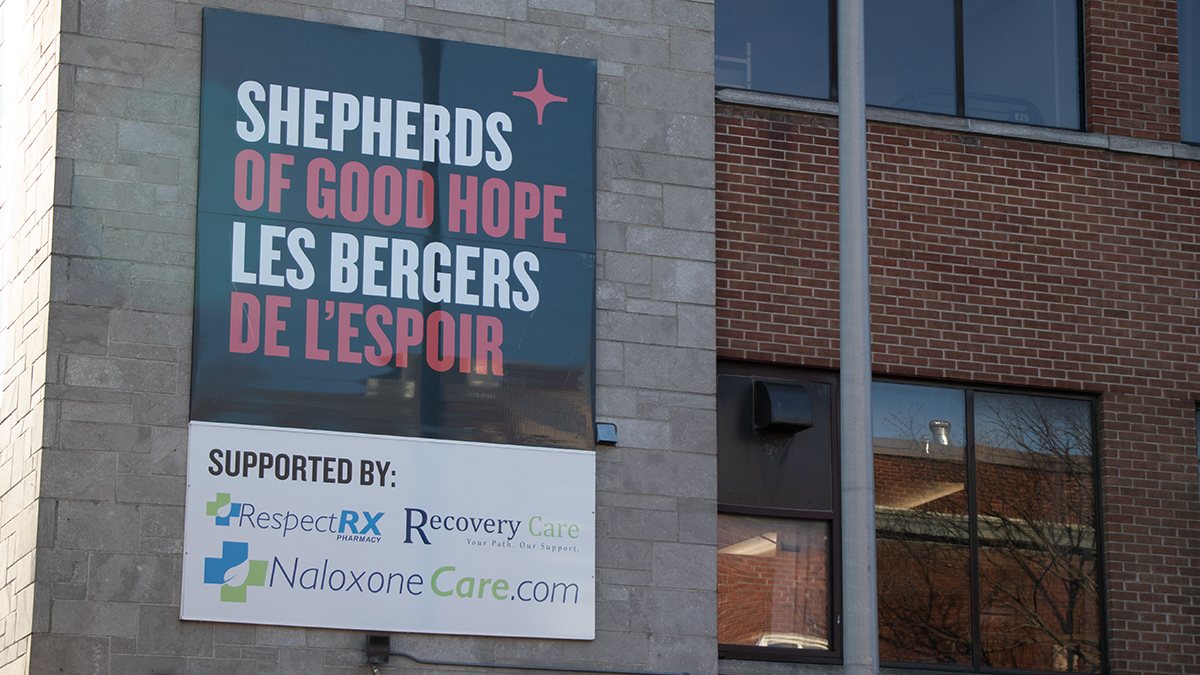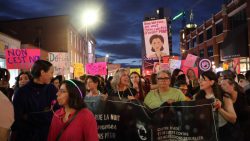Ottawa’s new emergency shelter task force, which will see the city marshal resources to provide spaces for people in need, is welcome news for those who help run shelter programs.
But some see it as a drop in the bucket of an overwhelming need to help people with housing concerns. A lack of affordable housing, combined with a large number of refugees and newcomers needing a place to sleep has many of Ottawa’s emergency shelters operating at full or more than full capacity, with no end in sight.
According to a 2023 report for Rentals.ca, the average rent for a one-bedroom apartment in Ottawa is more than $2,000, up nearly six per cent from a year earlier and an increase of nearly 30 per cent since November 2019. That coupled with high food prices has made Ottawa very difficult to afford for low-income people.
Aileen Leo, the director of communications the Ottawa Mission, says that institutions such as hers are bearing the brunt of the housing crisis.
“The Mission has been at over capacity for years. The only time when it wasn’t is when there were the overflow shelters that were set up during COVID, where the city and shelters diverted clients so we could have a bit better physical distancing,” said Leo. “We’re currently at 105 per cent capacity, and that was before the recent influx of refugees.”
Leo said that, in addition to providing emergency shelter, the Mission works to find permanent housing for clients, but mental health barriers and rising interest rates on housing make it difficult to do so.
“Some people stay a few days, some people stay for longer. At our shelter, the average rate for mental health conditions is at 75 per cent, so that can also take into account how long people stay for,” Leo said.
Stephen Bartolo, the CEO of the Ottawa-based shelter and soup kitchen Shepherds of Good Hope, says his staff feel the strain that comes with providing shelter during winter.
“Where it becomes obviously more of an issue in December, January, February, March because the Ottawa winter is -20C, and for people living rough, or choosing to live rough, that could be the matter of life and death,” Bartolo said.
Like the Ottawa Mission, Shepherds of Good Hope has been at more than 100 per cent capacity for months, which leaves Bartolo in a helpless position when there is a rise in people needing beds to escape the cold.
“One of the real big issues this year is there’s close to 300 people right now that are choosing to live rough in encampments and we assume that 70 to 75 per cent of them are going to want to come in in December and January, and then the question was, ‘where are they going to go?’ Because all of the shelters were at, or close to 100 per cent capacity.”
To address this, the emergency shelter task force has committed to advising the city to open more beds and spaces for people seeking shelter this winter. The city’s first move was to turn the Heron Road Community Centre into an emergency shelter from November to March.
Although he says Shepherds of Good Hope supports the city initiative, Bartolo recognizes the drawbacks of taking away certain services to provide others.
“What’s happening on Heron Road, even though we know as a city we need more options for those experiencing homelessness, taking the community centre away from the Heron residents is a major loss for that community,” said Bartolo. “So that’s not good. These are band aid, short-term, crisis-oriented solutions.”
The city recognizes the negative effects of this decision, stating “we acknowledge our emergency housing response has impacted local programming in the community and want to express our gratitude for the community’s adaptability and support. We are committed and continue to work towards exiting city community centres as soon as possible.”
Orléans West-Innes Counc. Laura Dudas, who co-chairs the task force, says the decision to turn the community centre on Heron Road into an emergency shelter instead of another community centre in the city has more to do with the resources available at the facility than anything else.
“The decision to choose the Heron Road Community Centre was a city staff decision, but it was based on criteria that city staff have to go through in terms of identifying facilities that would accommodate people’s needs if they’re staying overnight and sleeping,” she said.
“So some of the reasons why a location like that would be chosen would be that it provides amenities such as showers, that it would have enough space for the number of people and that it would have cooking facilities for food, and that there would be ample room to provide the supports for those who are in the facility, even if it’s just for a short duration of time.”
Dudas says the city is unwavering in their commitment to coming up with spaces for a massive influx of newcomers to Ottawa who don’t have a place to live upon arrival, as well as long-term residents experiencing homelessness for the first time, due the lack of affordable housing in the city.
“This task force in particular recognized that we are a compassionate city and it will not be something we can’t as residents or politicians or journalists, none of us would be willing to accept having somebody sleep outside in -30C degree weather. So, we’re making some hard decisions now, some that are more favourable than others and some are hard and some are easy.”
The housing problem is not isolated to Ottawa and Dudas says that it will take an integrated effort from all three levels of government to have any chance at providing more affordable housing for Canadians and finding adequate space for people experiencing homelessness to take shelter in the future.
“We absolutely need to stress that the federal government, the provincial government has to step up to the plate because if we’re going to resolve this issue in a more permanent way, we can’t do it alone.”
The federal government has just announced a number of measures in the fall economic update to address the housing affordability crisis, though the measures had a cool reception from some, including the Federation of Canadian Municipalities which says the measures lack infrastructure investment and fails to meet the needs of people right now..




